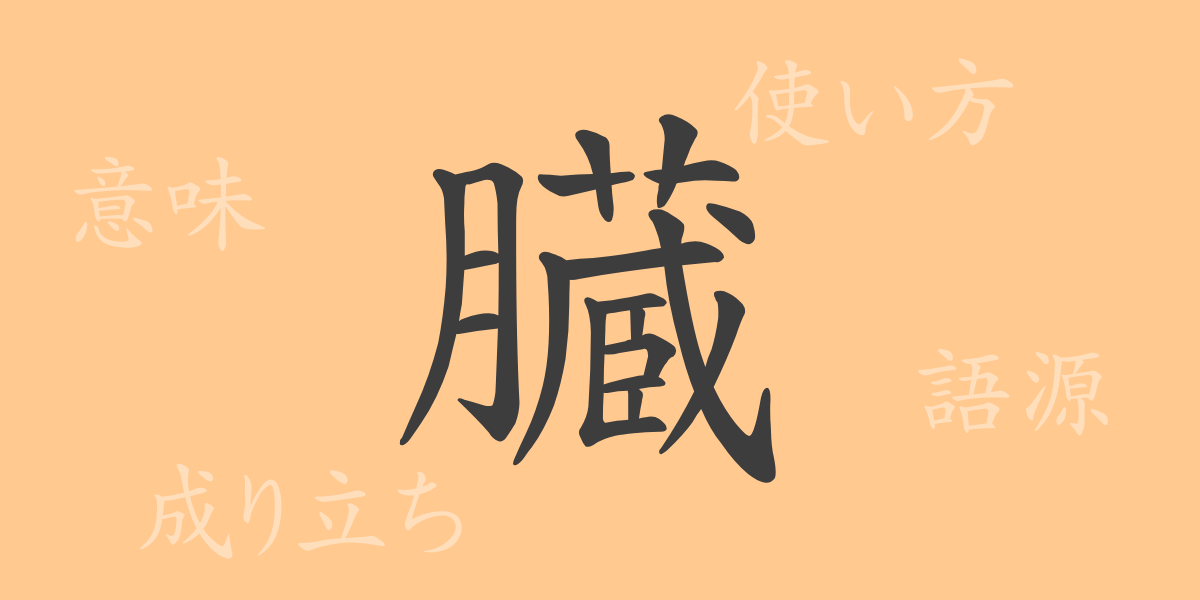Japanese language boasts a vast number of Kanji characters, each carrying its own unique history and meaning. “(臓)” is one of the commonly used Kanji in daily life, representing crucial concepts related to our internal organs. This article explores the entirety of “(臓)” from its etymology to its meanings, usage, readings, and idioms.
Etymology of 臓 (ぞう – Zō)
The Kanji “(臓)” historically refers to vital organs within the body. Its form shares origins with “(蔵)”, originally a pictograph denoting a place for storing food and goods. In ancient China, internal organs were perceived as storage facilities essential for sustaining life, influencing the formation of the character “(臓)”.
Meaning and Usage of 臓 (ぞう – Zō)
“(臓)” primarily signifies internal organs in humans and animals, especially visceral organs. In medical contexts, it is used in words like “心臓” (shinzō – heart), “肝臓” (kanzō – liver), and “腎臓” (jinzō – kidney). Figuratively, it can also represent the inner emotions or character of a person, as seen in expressions like “心の臓” (kokoro no zō – heart of the matter).
Readings, Stroke Count, and Radical of 臓 (ぞう – Zō)
The Kanji “(臓)” has several readings and associated meanings:
- Readings: On’yomi (音読み) ‘ゾウ’ (zō), Kun’yomi (訓読み) ‘はらわた’ (harawata)
- Stroke Count: 19 strokes
- Radical: 肉部 (にくぶ/にくづくり – nikubu/nikuzukuri)
Idioms and Proverbs Using 臓 (ぞう – Zō) and Their Meanings
There are numerous idiomatic expressions and proverbs featuring “(臓)”, demonstrating the richness of Japanese language:
- 臓器 (ぞうき – zōki): Refers to internal organs within the body.
- 内臓 (ないぞう – naizō): Refers specifically to internal organs, especially digestive organs.
- 腑に落ちない (ふにおちない – fu ni ochinai): An idiomatic expression meaning “unable to understand or accept”.
- 心臓に悪い (しんぞうにわるい – shinzō ni warui): Expression describing a shocking or terrifying event.
- 肝を冷やす (きもをひやす – kimo o hiyasu): Idiom indicating extreme fear or anxiety.
Conclusion on 臓 (ぞう – Zō)
The Kanji “(臓)” is a crucial character that denotes our vital internal organs essential for life. Its usage extends beyond medical fields, enriching the breadth of expression in Japanese language. We hope this article helps you appreciate the deep historical and cultural background of “(臓)”, offering a glimpse into the diverse world of Japanese language.

























